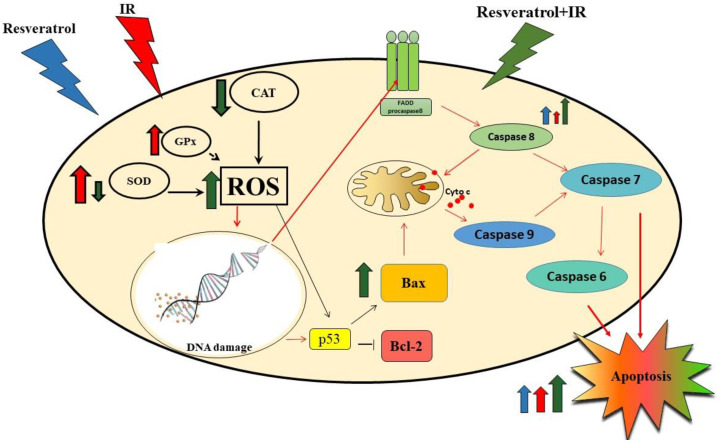Figure 10.
This image shows only the pathways of the resveratrol-induced radiosensitivity mechanism in MCF-7 cells that were investigated in this work (black arrows) or discussed on the basis of literature data (red arrows). Resveratrol potentiated the radiosensitivity in MCF-7 cells by decreasing antioxidant enzyme activity (SOD and CAT). Inhibiting SOD and CAT activity would result in increased ROS, thereby causing damage to cellular macromolecules. DNA damage leads to activation of the p53 protein. The p53 protein mainly acts as a transcription factor that induces and/or inhibits the activation of many genes associated with the induction of apoptosis. In the intrinsic pathway of apoptosis, p53 may directly activate the proapoptotic Bax protein or inhibit the antiapoptotic bcl-2 protein. The Bax protein causes the opening of mitochondrial channels and the release of cytochrome c. Cyt c, along with other proapoptotic agents, activates caspase 9, which affects the activation of executive caspases. DNA damage can also induce the extrinsic pathway of apoptosis associated with the activation of surface death receptors (FAS). The changes in the conformation of these receptors after attaching to the FADD protein lead to the activation of caspase 8, which can induce death via direct cleavage of caspase 7, or can activate intrinsic apoptosis. Thus, resveratrol enhances the process of apoptosis in MCF-7 cells that are exposed to IR.

